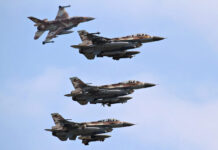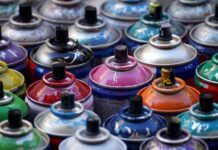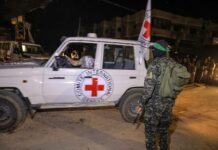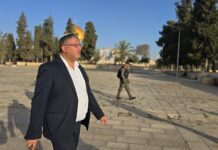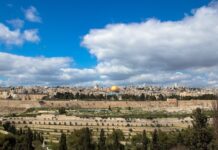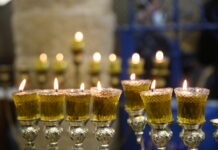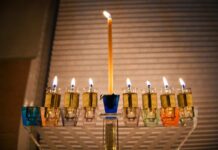On July 22, 1946, members of the Irgun Jewish underground entered the King David Hotel in Jerusalem which housed on its southern side the headquarters of the British in Mandatory Palestine. Disguised as Sudanese waiters and Arab men, they snuck into a kitchen and placed explosives hidden inside milk churns against the supporting pillars of the building.
The explosions killed 91 people and wounded 45, bringing down all seven stories of the building’s southern wing. The dead included Britons, Jews, Arabs, and others. Menachem Begin, leader of the Irgun organization always said that in order to prevent any casualties, his organization gave the British a 30-minute advance warning in the form of three phone calls which were dismissed as a prank.
The leadership of the Jewish Agency, the body which represented the Jewish community in Palestine at the time, rapidly denounced the attack, which has remained a subject of historical controversy. Indeed, Prof. Mordechai Golani on Friday described the attack as a stain and scar on Israel’s collective memory, one that has continued to serve as a tool to undercut Israeli moral authority for seven decades.

The bombing was the culmination of a series of events. In 1946 the Jewish resistance groups were finding little success except on a tactical level, as Professor Aviva Halamish, historian at the Open University told the conference. A series of successful simultaneous attacks on 11 bridges had resulted in a British crackdown code-named Operation Agatha, including strict curfews and the arrest of many leaders.
The King David Hotel attack was the response, Halamish said, and its fallout ended up strengthening the resistance’s moderate wing. Organized resistance moved away from attacks on the British, focusing instead on smuggling Jews into the country and stockpiling arms for an expected conflict with the Arabs of the region.
Besides collective memory and historical debate, of course, the events of July 22 deeply affected many people.
Sara Agassi volunteered for the Irgun and became a commander. She danced at the hotel a couple of times and started to stake out the layout of the building.

At around 9 am on the day of the attack another commander sent her outside the hotel where she saw the disguised Irgun operatives. She observed a man with a barrel of oil, which she discovered was so that the street could be blocked with a blaze to prevent help from arriving to the scene of the attack.
She and another female operative were told to wait for a signal. When they received the signal, she and the other operative phoned the hotel with a warning, as well as the editorial office of thePalestine Post newspaper and the nearby French consulate. Hotel staff reportedly laughed and said they would not take any orders from Jews, she recalled.
“A huge mushroom cloud rose above the King David [Hotel] and I knew that we had carried out the job — and all of Jerusalem shut down,” she recalled. A three-day curfew followed.
Ruth Kedar told the conference the story of her father, Julius Jacobs, who came to Israel in 1917, rising through the ranks to become the highest-ranking Jewish officer in the British Mandate before trying to resign due to British policy. His resignation was refused and he was instead transferred to the administration’s economic department, to a new office on the opposite side of the hotel two weeks before the bombing. He died in the attack.
Shoshana Levy Kampos said she was at the conference to honor her boss — Julius Jacobs. Kampos was a typist for the British and worked at Jacobs’s office in a shed attached to the hotel. She was at work on July 22 and heard gunfire from the road outside. Her manager went to investigate, returning shortly and saying that no one must leave the office.
The blast brought down the ceiling and left them in darkness and silence. She crept forward until she saw a window. Two Arab officers were helping people out. She ran all the way home in tears. The next day she went to work as usual. The offices were gone, of course. But the tourists had been evacuated from the still-standing sections of the building. “And that’s where we settled in and continued working as though nothing had happened,” she recalled.

